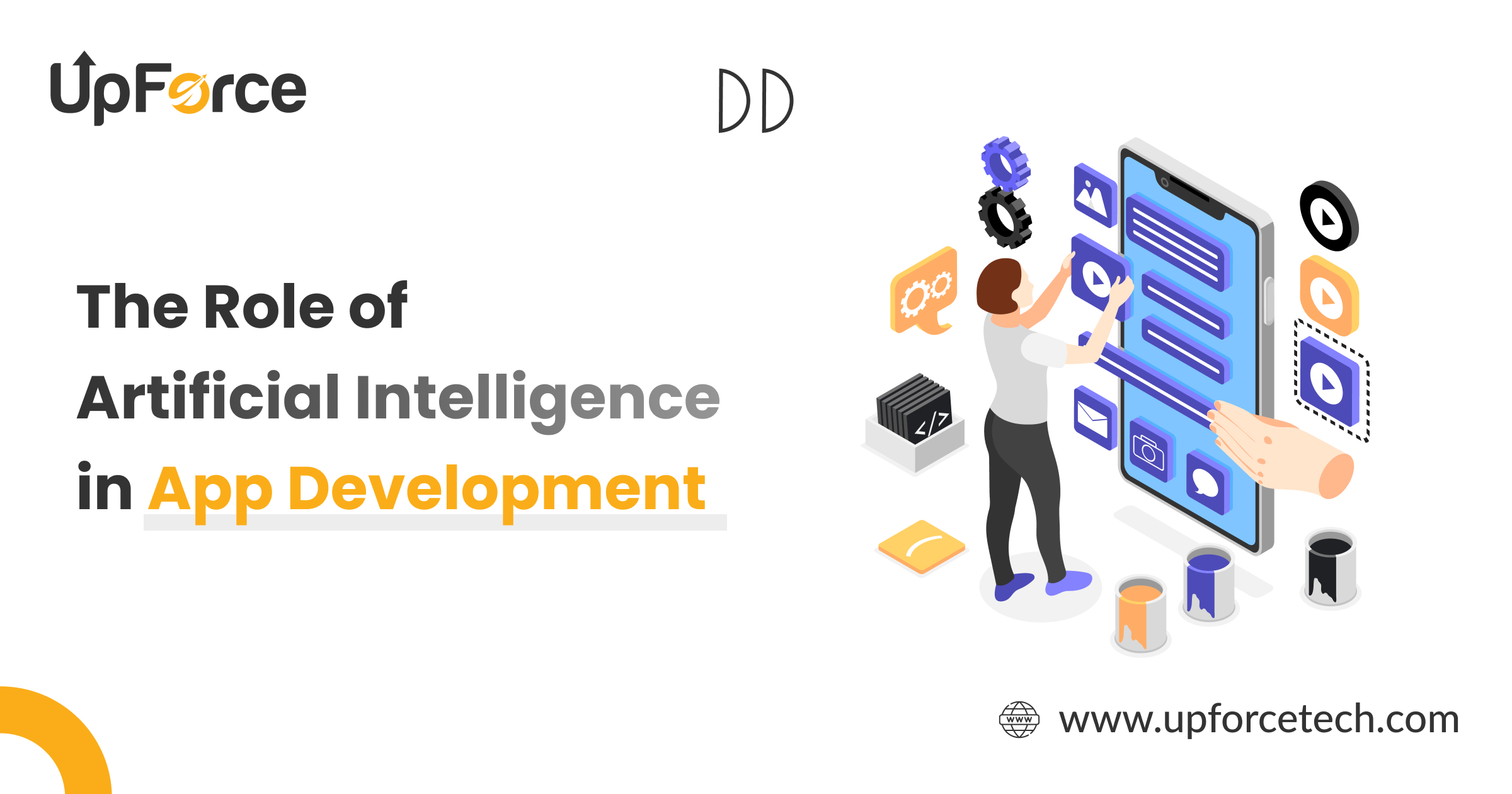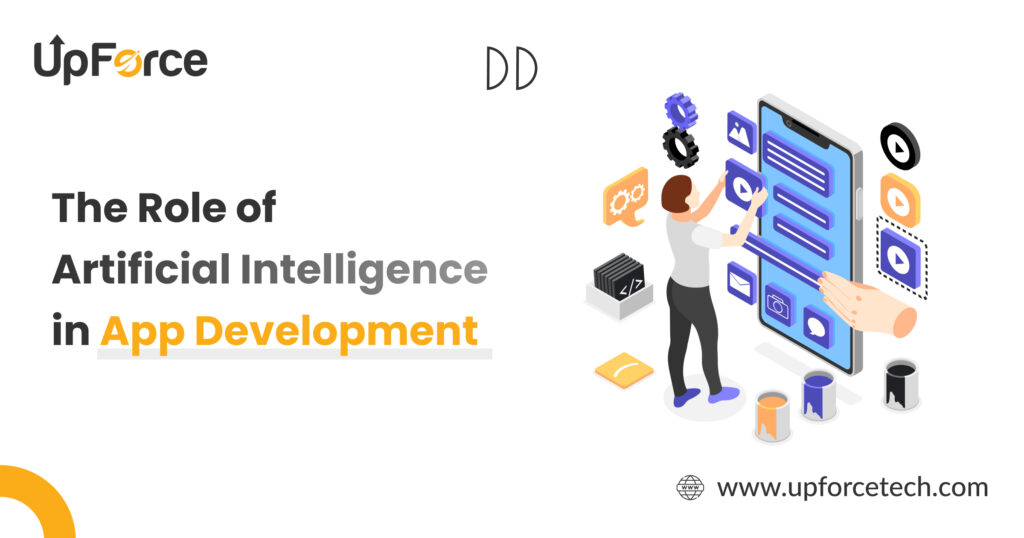The Role of Artificial Intelligence in App Development
Table of Contents
Artificial Intelligence (AI) has revolutionized various industries, and app development is no exception. The integration of AI into app development processes has led to smarter, more efficient, and highly personalized applications. In this blog, we will explore how AI is transforming app development, its key benefits, and how businesses can leverage AI to stay ahead in the competitive market.

The Impact of Artificial Intelligence in App Development
Artificial Intelligence is no longer a futuristic concept but a present-day reality that significantly impacts how apps are developed and used. AI enables developers to create apps that are more intelligent and responsive to user needs. This transformation is evident in various aspects of app development:
-
Enhanced User Experience (UX): AI helps create apps that offer personalized user experiences by analyzing user behavior and preferences. Machine learning algorithms can predict user needs and suggest relevant content or actions, making the app more engaging and user-friendly.
-
Automation of Development Processes: AI-driven tools and frameworks can automate repetitive tasks in app development, such as coding, testing, and debugging. This automation accelerates the development process, reduces human error, and allows developers to focus on more complex aspects of the project.
-
Predictive Analytics: AI allows developers to integrate predictive analytics into apps, enabling businesses to anticipate user behavior and make data-driven decisions. This can lead to more effective marketing strategies and improved customer retention.
-
Natural Language Processing (NLP): NLP allows apps to understand and respond to human language naturally. This technology is the backbone of voice-activated assistants, chatbots, and other conversational interfaces that enhance user interaction.
-
AI-Powered Recommendations: Apps can now provide more accurate recommendations based on user data, thanks to AI. This is particularly useful in e-commerce, content streaming, and social media apps, where personalized recommendations can drive user engagement and sales.
Key Benefits of Artificial Intelligence in App Development
The integration of AI in app development offers numerous benefits that can significantly enhance the functionality and success of an application. Some of the key benefits include:
-
Personalization: AI enables a high level of personalization, ensuring that each user has a unique experience based on their preferences and behavior. This personalization leads to increased user satisfaction and loyalty.
-
Efficiency: AI-powered automation reduces the time and effort required for app development, leading to faster project completion and lower costs. This efficiency is crucial in a market where time-to-market can be a critical factor.
-
Scalability: AI allows apps to scale more easily by automating processes and providing real-time data analysis. This scalability is essential for apps that expect to handle large user bases and data volumes.
-
Improved Decision-Making: AI’s ability to analyze vast amounts of data in real-time helps businesses make informed decisions, improving the overall effectiveness of their apps.
-
Enhanced Security: AI can help identify and mitigate security threats by analyzing patterns and detecting anomalies in app usage. This proactive approach to security ensures that apps are better protected against potential attacks.
How AI is Changing App Development Trends
The influence of AI in app development has led to several emerging trends that are shaping the future of the industry:
-
AI-Driven App Testing: AI tools can automate the testing process by identifying bugs and issues faster than traditional methods. This leads to higher-quality apps and reduces the time spent on testing.
-
Voice-Activated Interfaces: With the rise of voice assistants like Siri, Alexa, and Google Assistant, AI is driving the adoption of voice-activated interfaces in apps. These interfaces allow users to interact with apps using natural language, making the experience more intuitive and hands-free.
-
AI-Powered Analytics: AI is enabling apps to provide deeper insights through advanced analytics. By analyzing user data, AI can identify trends, preferences, and behaviors that can inform app development and marketing strategies.
-
Smarter Chatbots: Chatbots powered by AI are becoming more sophisticated, offering real-time customer support and personalized interactions. These bots can handle a wide range of tasks, from answering frequently asked questions to processing transactions.
-
Augmented Reality (AR) Integration: AI is enhancing AR experiences by making them more interactive and responsive to the user’s environment. This integration is particularly impactful in gaming, retail, and real estate apps, where users can visualize products and spaces in real time.
Challenges of Integrating Artificial Intelligence in App Development
While the benefits of AI in app development are significant, there are also challenges that developers and businesses must consider:
-
Data Privacy: AI relies on vast amounts of user data to function effectively. Ensuring that this data is collected, stored, and used responsibly is crucial to maintaining user trust and complying with regulations.
-
Complexity: Integrating AI into apps can be complex and requires specialized knowledge. Developers must be skilled in AI technologies and understand how to apply them effectively in app development.
-
Cost: Developing AI-powered apps can be expensive due to the need for advanced technology and expertise. Businesses must weigh the potential benefits against the costs to determine if AI integration is worth the investment.
-
Ethical Considerations: AI can raise ethical concerns, particularly around issues like bias and transparency. Developers must ensure that their AI systems are fair and transparent to avoid negative consequences.
How AI is Enhancing App Security
Security is a major concern in app development, and AI is playing a crucial role in enhancing app security. AI-powered systems can detect and respond to threats more quickly and accurately than traditional methods. Here’s how:
-
Anomaly Detection: AI can analyze user behavior and detect any unusual activity that may indicate a security breach. By identifying these anomalies in real-time, AI helps prevent potential attacks.
-
Threat Intelligence: AI can process large volumes of data to identify emerging threats and vulnerabilities. This proactive approach allows developers to address security issues before they become critical.
-
Automated Security Responses: AI can automate responses to security threats, such as blocking suspicious activity or alerting administrators. This automation reduces the time between detecting and responding to threats, minimizing potential damage.
-
User Authentication: AI can enhance user authentication processes by analyzing patterns in user behavior, such as typing speed and location. This makes it harder for unauthorized users to gain access to the app.
AI and the Future of App Development
The role of AI in app development is expected to grow even more significant in the coming years. As AI technologies continue to advance, they will enable the creation of even more intelligent and responsive applications. Here are some future trends to watch:
-
AI-Generated Content: In the future, AI could take a more active role in generating content for apps, from writing code to creating user interfaces. This would further reduce development time and allow for more personalized user experiences.
-
Advanced Personalization: AI will continue to improve its ability to offer personalized experiences, potentially creating apps that can adapt in real-time to each user’s needs and preferences.
-
Integration with IoT: The Internet of Things (IoT) and AI are likely to become increasingly intertwined, leading to smarter apps that can interact with a wide range of connected devices. This integration will enable more seamless and intuitive user experiences.
-
Ethical AI: As AI becomes more prevalent, there will be a greater focus on developing ethical AI systems. This includes ensuring transparency, fairness, and accountability in how AI is used in app development.
How UpforceTech Can Help
At UpforceTech, we specialize in integrating AI into app development to create smarter, more efficient, and user-friendly applications. Our team of experts understands the complexities of AI and can help you leverage its full potential to drive your business forward. Whether you’re looking to enhance user experience, automate processes, or improve app security, we have the expertise to deliver the results you need.
Visit Upforce Tech to learn more about how we can help you harness the power of AI in your app development projects.
The Impact of Artificial Intelligence in App Development
| Aspect | Description | Benefits | Examples |
|---|---|---|---|
| Personalization | AI algorithms analyze user behavior to provide tailored experiences. | Improved user engagement and satisfaction. | Netflix recommendations, personalized ads. |
| Predictive Analytics | AI predicts future trends based on data analysis. | Enhanced decision-making and trend forecasting. | Sales forecasts, user behavior predictions. |
| Automation | AI automates repetitive tasks and processes. | Increased efficiency and reduced manual errors. | Chatbots, automated testing. |
| Natural Language Processing (NLP) | AI understands and processes human language. | Better user interaction and support. | Voice assistants, chatbots. |
| Enhanced Security | AI detects and responds to security threats in real-time. | Improved app security and threat mitigation. | Fraud detection, anomaly detection systems. |
| Image and Speech Recognition | AI interprets visual and audio data. | Advanced user interfaces and accessibility. | Facial recognition, speech-to-text features. |
| Smart Recommendations | AI provides suggestions based on user data and behavior. | Increased user engagement and conversions. | E-commerce product recommendations, content suggestions. |
Curious how AI can take your app to the next level? Check out our latest blog to see how these exciting innovations can make a real difference. Dive in here!
Sign up for the free Newsletter
AI is not just a tool in app development; it's the catalyst that drives innovation and creates smarter, more intuitive applications
UpforceTech
FAQs
AI is used in app development to enhance user experiences, automate processes, provide predictive analytics, and improve security.
AI offers benefits such as personalization, efficiency, scalability, improved decision-making, and enhanced security in app development.
AI improves app security by detecting anomalies, providing threat intelligence, automating security responses, and enhancing user authentication.
Challenges include data privacy concerns, the complexity of AI technologies, higher development costs, and ethical considerations.
UpforceTech offers expertise in integrating AI into app development, helping businesses create smarter, more efficient, and secure applications.

